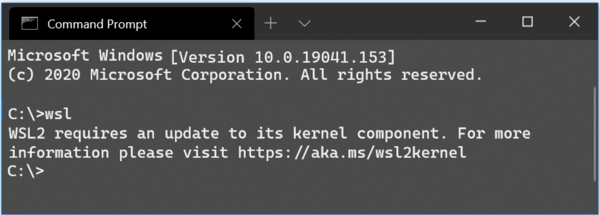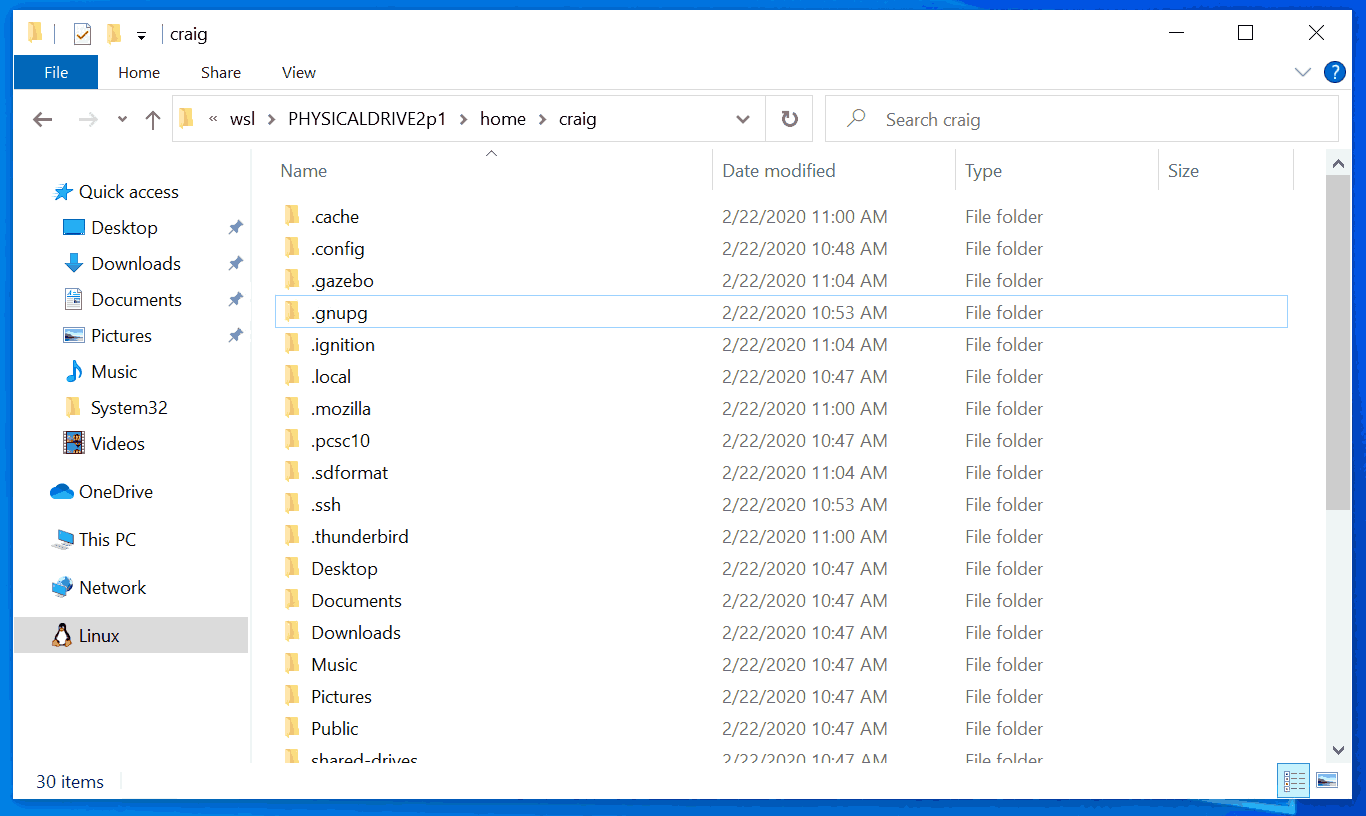Microsoft has published a document that covers the changes that were made to the Windows Subsystem for Linux in Windows 10 in September 2020. The post mentions kernel updates via Windows Update, WSL 2 availability on Windows 10 version 1909 and 1903, and some other interesting improvements made to the feature.

WSL 2 is a new version of the architecture that powers the Windows Subsystem for Linux to run ELF64 Linux binaries on Windows. This new architecture changes how these Linux binaries interact with Windows and your computer’s hardware, but still provides the same user experience as in WSL 1 (the current widely available version).
Advertisеment
It ships a real Linux kernel with Windows that will make full system call compatibility possible. This is the first time a Linux kernel is shipped with Windows. WSL 2 uses the latest virtualization technology to run its Linux kernel inside of a lightweight utility virtual machine (VM).
WSL 2 support is now available in Windows 10 version 1903 and 1909
WSL 2, the next-get implementation of the Linux layer for Windows 10, was exclusively available to Windows version 2004. In order to make it available for more Windows 10 users, Microsoft has made it available for two previous releases of the OS.
Update on running Linux GUI apps in WSL
Microsoft is getting closer to an initial preview of this feature and will announce a preview release for Windows Insiders within the next couple of months.
Below is an early look at an internal build running GUI apps in WSL. You can see that WSL will support many different types of applications, including IDEs running fully in a Linux environment. Devs have included lots of fit and finish details, such as showing the icons for Linux apps in the task bar and support for audio with your microphone. Below is the native Linux version of Microsoft Teams running in WSL.

WSL –install with distro support is coming soon to Insiders
At the BUILD 2020 conference Microsoft has introduced a new command line option, wsl --install. The first iteration of this feature is currently available in Windows Insider builds of Windows 10. Within the next couple of weeks, the --install argument will include the ability to install WSL distros, meaning you will be able to fully set up WSL on your machine, along with your chosen distro, with just one command.
Access Linux file systems using WSL
Starting with Windows Insiders preview build 20211, WSL 2 offers a new feature: wsl --mount. This new parameter allows a physical disk to be attached and mounted inside WSL 2, enabling you to access filesystems that aren’t natively supported by Windows (such as ext4). You can also navigate to these files inside of Windows File Explorer.

To learn more about this feature read the WSL 2 mount disk doc or announcement blog post.
Open-sourcing TensorFlow with DirectML
WSL includes support for GPU compute workflows, available now in Windows Insiders builds. Read more about this change and how to get started in official docs: GPU accelerated machine learning training. Additionally, Microsoft made the source code of TensorFlow-DirectML, an extension of TensorFlow on Windows, available to the public as an open-source project on Github. TensorFlow-DirectML broadens the reach of TensorFlow beyond its traditional Graphics Processing Unit (GPU) support, by enabling high-performance training and inferencing of machine learning models on any Windows devices with a DirectX 12-capable GPU through DirectML. DirectML is a hardware-accelerated deep learning API on Windows. You can learn more about this change on the announcement blog post.
Linux kernel versions now auto-updated via Microsoft Update for WSL
With version 2004, Microsoft has removed the Linux kernel from the Windows OS image and instead will be delivering it to your PC via Windows Update, the same way that 3rd party drivers (like graphics, or touchpad drivers). You can manually check for new kernel updates by clicking the ‘Check for Updates’ button, or you can let Windows keep you up to date just like normal.
The new kernel versions are no longer only for Windows Insiders, now any device that has WSL enabled and has opted in to Microsoft Updates will automatically receive the latest kernel version! The Linux kernel release history can be found on the WSL docs.
Support us
Winaero greatly relies on your support. You can help the site keep bringing you interesting and useful content and software by using these options:
